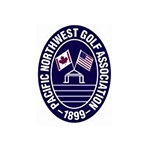Rule of the Month: 'Matching' the Right Ruling to the Situation
By Sr. Rules Officials: Pete Scholz and Terry McEvilly
Click Here for the Rule of the Month Archive
Match Play
In the beginning, all golf was played as a match, which consists of two players playing together each with the ability to watch the other player and protect his or her rights under the Rules.
A match is played by holes rather than the stroke play format of total score for the round. In other words, a match consists of 18 one-hole competitions, whereas stroke play consists of one 18-hole competition.
Today, due in large part to the popularity of the game, the majority of golf is played as stroke play which has allowed many more golfers to compete at one time. However, since the entire field of golfers must be protected, the Rules for stroke play are different than match play. And since many competitions begin with stroke play qualifying followed by match play, it is important to know both sets of Rules.
We generally focus on stroke play in the Rule of the Month articles, but this month’s questions will primarily focus on match play and some of the differences between the two forms of play. Test your knowledge on match play with the following true/false questions.
Questions: True / False
- A serious breach of playing from a wrong place must be corrected in match play.
- If a player plays out of turn, the opponent may immediately recall the stroke and require the player to play in proper order.
- If a player in a match is uncertain of the proper procedure, he or she may play two balls in completing the hole.
- Since only the two players in a match are affected, they may agree to disregard a Rule or waive a penalty.
- The player may choose to overlook a breach of the Rules by his or her opponent.
- Playing from outside the teeing area when starting the play of a hole results in a loss of hole penalty.
- A stroke may be conceded by the opponent any time before the player’s next stroke even while the player’s ball is in motion after the previous stroke.
- During the match, if the player and opponent agree on an incorrect state of the match, the agreed upon incorrect state of the match becomes the actual match score if not corrected before one of them begins the play of another hole.
- During the play of the 4th hole, the opponent sees the player improving the area of their intended stance. The opponent has until the completion of the match to request a ruling.
-
When a player in a match gets a penalty, he or she must inform the opponent of the penalty before either player begins the play of the next hole.
Answers:
- False. Rule 14.7a. Playing from a wrong place in match play results in the general penalty. Since the general penalty in match play is a loss of hole, there is no purpose in correcting he error because the outcome of the hole has been decided.
- True. Rule 6.4a(2) Playing out of order puts the result of the stroke into the opponent’s hands. If the player has played a great shot to the green leaving only a tap-in for a birdie, rest assured that the opponent will be requiring the player to cancel the stroke and replay in proper order. However, if the player and opponent agree to play our of turn to save time, the opponent has forfeited the right to recall the stroke.
- False. Rule 20.1b(4). This procedure is only allowed in stroke play. If the opponent requests a ruling involving the player’s play of a second ball, the player incurs a loss of hole penalty for playing a wrong ball. However, if the player and opponent agree that the player may play a second ball, the original ball will be ruled to count if they request a ruling from the Committee.
- False. Rule 1.3b(1), 1.3c(3) and 20.1b. Agreeing to disregard a Rule or failing to apply a known penalty is not allowed in either form of play and both players are disqualified. However, if the player and opponent are unsure of how to proceed in a situation and they agree upon a procedure, the agreed upon solution stands and neither player may request a ruling if the procedure is later found to be incorrect. See question #5 for further clarity.
- True. Rule 3.2d(4). Provided that there is no agreement between the player and the opponent to waive a known Rule or disregard a known penalty, a player in a match may choose to overlook a breach. If both players are uncertain as to the proper procedure, they may settle the situation among themselves, but they must not purposely agree to waive a Rule or penalty.
- False. Rule 6.1b(1). There is no penalty in match play for playing from outside the teeing area when starting the play of a hole. However, the opponent may immediately cancel the stroke and require the player to play again from within the teeing area.
- True. Rule 3.2b. The player’s score for the hole includes the conceded next stroke. If the concession was made while the ball was in motion as a result of the previous stroke and the ball is holed, the concession is irrelevant. It is important to note that a concession must be done either verbally or by an action that clearly indicates the concession of the next stroke.
- True. Rule 3.2d(3). Once either player tees off at the next hole, the agreed upon state of the match stands.
- False. Rule 20.1b(2). In this situation, since the opponent knew of the facts of the breach, the opponent has until either player makes a stroke to begin the next hole to request a ruling. For a timely request to be made, the opponent must either notify the Committee or referee or inform the player that a later ruling will be sought.
-
False. Rule 3.2d(2). The player must inform the opponent of the penalty as soon as possible, which is usually before the opponent makes their next stroke. This applies even if the player was unaware that they had incurred a penalty. Every player is expected to recognize when they have breached a Rule, which is why it is important to study the Rules. Continue to read this monthly article and attend OGA Rules Workshops when they come to your area.








